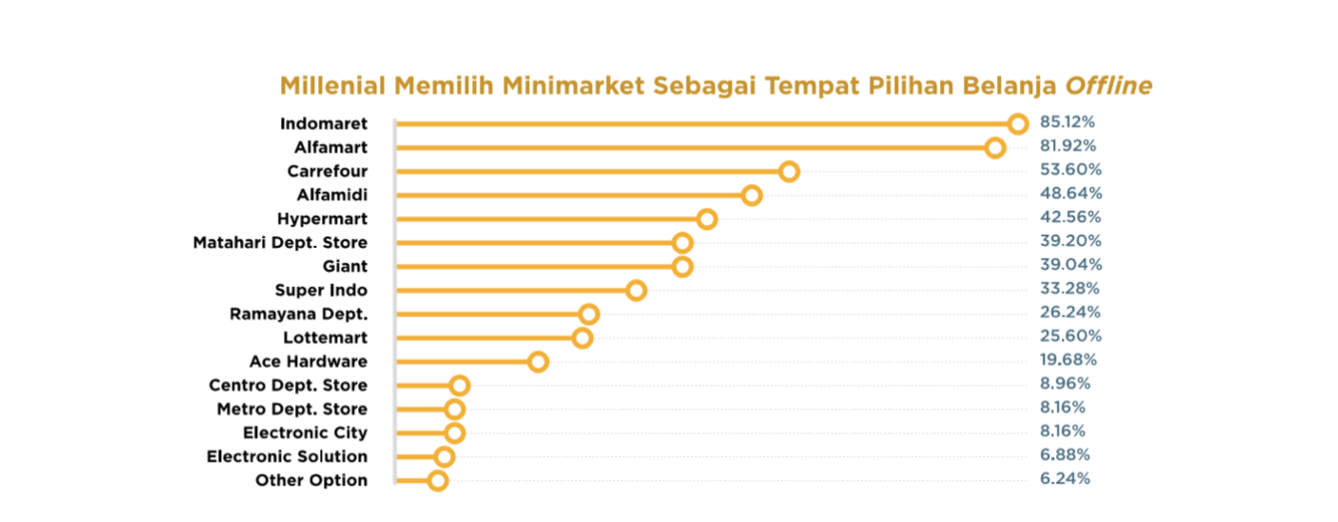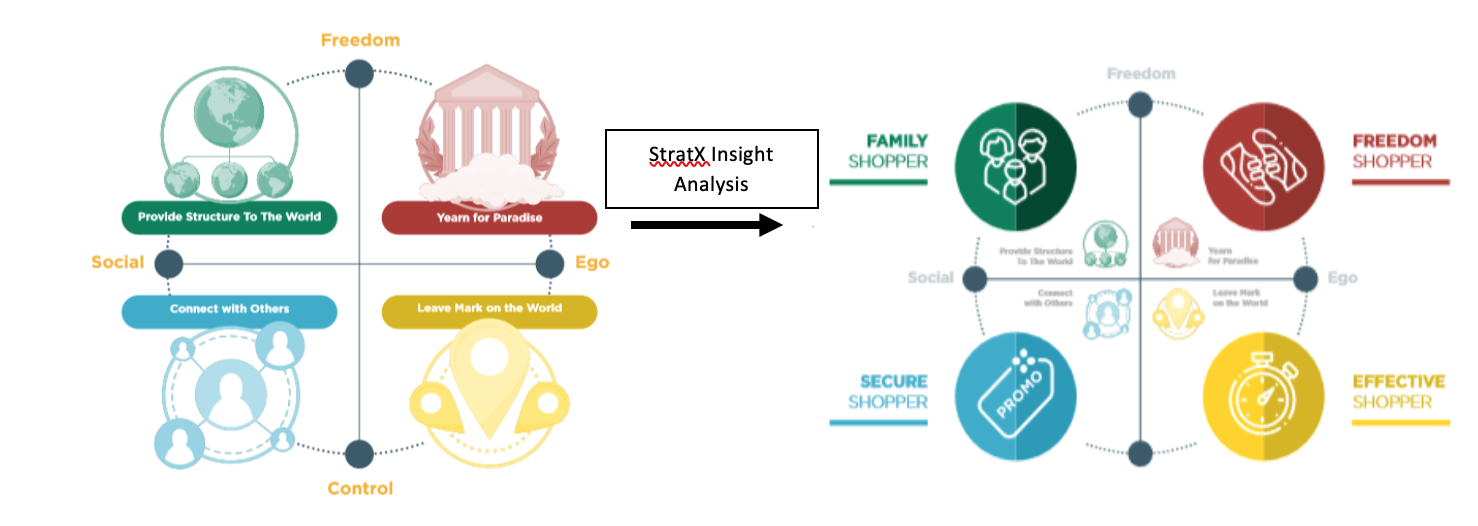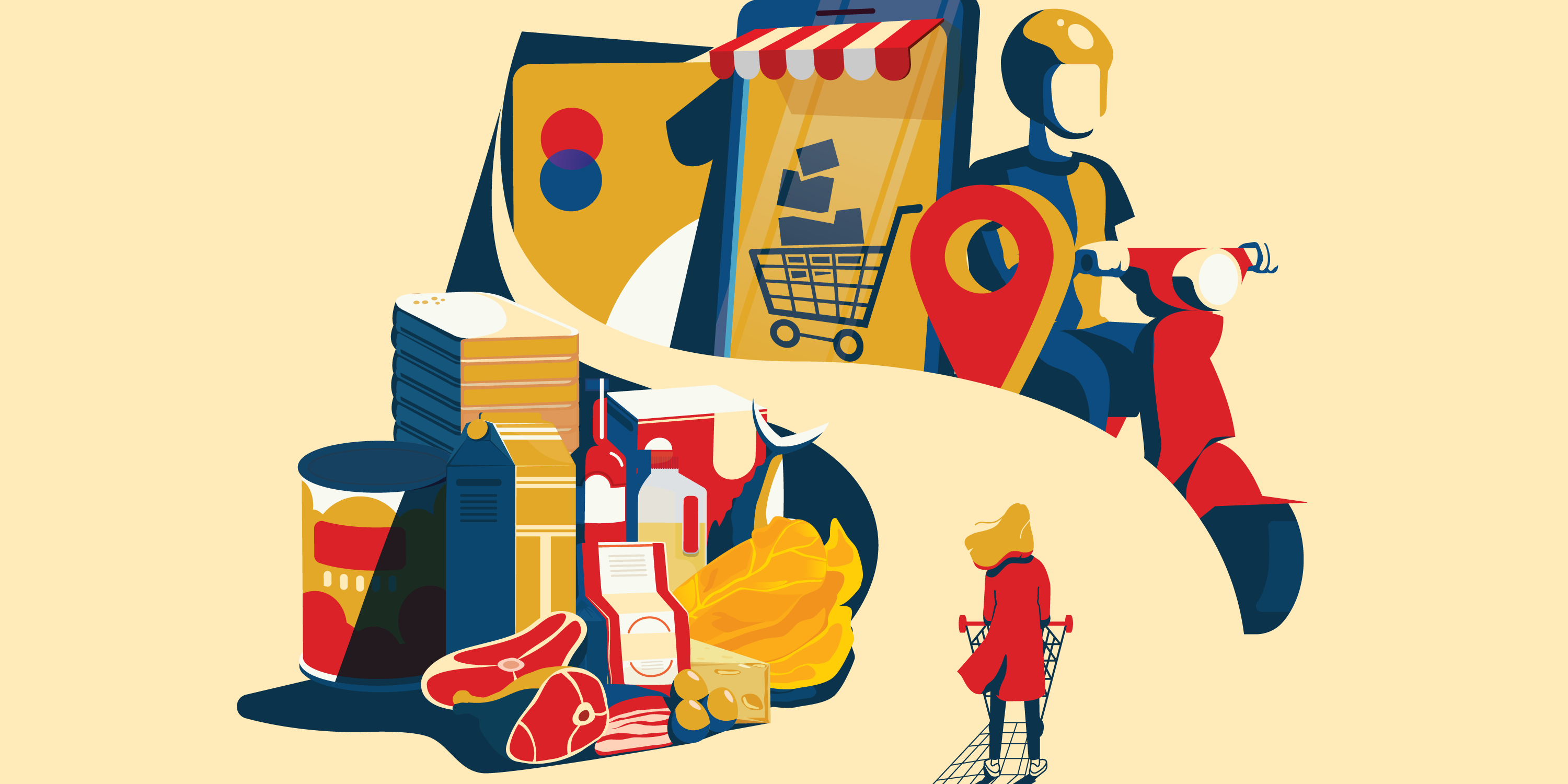Ensuring the quality of products is our top priority
So may the slogan be thought of by several well-known brand manufacturers in Indonesia. As we know, many brands will always try to provide the best quality product to the market, it called “product-centric”. Where’s the company always sold the product according to the company’s vision. In the other side they are less concerned about customer expectation. Currently, this “product-centric” paradigm slowly shift because of the high competition, and brands are cudgel one’s brains to survive. Nowadays, the company more concern about customer needs & wants, so that they will make every single strategic plan to fulfil customer satisfaction.
In this digital technology era, almost all customer activities have disruption. In Indonesia, this issue also assumed to give an impact on the retail grocery industry declining, there are a reduction in outlets numbers even closed. That all hypothesize due to customer experience shifting in shopping offline to online in Indonesia. Hence, StratX Insight has investigated further the sustainability of retail grocery companies in Indonesia, especially those in the Greater Jakarta area.

According to the quantitative surveys to retail grocery customers, we find that customers able to classify the occasion on shopping into the event that affects their purchase decision during shopping at super/hypermarket. Based on figure 1.1. we can conclude that right now, MillenNials prefer to shop at the mini-market (Indomaret and Alfamart) for their daily needs than to super/hypermarket. This result indicates there is any shifting of competition in retail groceries. Moreover, based insight above data, customers indicated has split their shopping purpose in 2 (two), there are minimarkets as a place to buy various additional (non-primer) goods and super/hypermarket as a place to purchase daily consumer goods (primer) for a long time in large quantities.
Hence, brand companies need to conducting customer maintenance by a deep understanding of current customers behavioUr, experience, and journey, so brand companies know how to approach their target segment. Furthermore, understanding customers is not about motivation or perception only but more deeper through 3 (three) short questions about who are the customers, how the characteristics of customers during shopping, what characteristics affect their shopping activities, and how shopping motivation can affect customers behaviour and experience in term of pre-purchase, purchase, and post-purchase shopping at the super / hypermarkets.
We strongly believe that every customer has a different “Persona”, which is related to their daily activities, especially when they’re shopping. Hence, StratX Insight interprets this persona into several customer groups when they’re shopping at retail groceries as “The New Customer Behaviour”.

Freedom Shopper
When I’m shopping there is no hourly reference. I’ll do it just when I want it. For example, when I’m bored, I will go shopping. When I’m hanging out with my friends, after eating with family then I will go to the supermarket and shop. Shopping for me is like therapy. Because I’m happy after I’m shopping
Freedom shopper group are representatives of the type of person yearn for paradise who is very concerned with ego and freedom in carrying out their actions. Hence, freedom shopper has a shopping motivation that presents as “me time” or “therapy” from various kinds of problems and fatigue to give a charmed or happy effect. Freedom shoppers usually have a cheerful, open and warm personality. When shopping, they prefer to shop alone so they not have any barrier, both place and time for shopping and spend a lot of time just to walk around and observe each product one by one. Freedom Shopper is a group that experiences seekers in every shopping journey point, hence they tend to interest in places that not provide daily goods needs only but also provide exploration experience to become a therapy that makes them happy after shopping.
Effective Shopper
Shopping is fast, only buy what you needed. I don’t like to go around the mall. If you want to go for a walk, don’t go to the mall, you better go to the park. Instead of going to the mall, I’d prefer at home just for playing with my kids.
Effective shopper group is representatives of leave mark types on the world who are very concerned with ego (wants) and also control (guided). Hence, the effective shopper has no enthusiasm when shopping, because this monthly activity which routinely. They perceived that shopping is a routine activity that sometimes interpreted as a burden. The effective shopper usually comes to the super / hypermarkets to buy the things they need without exploring or just going around the aisle to look at the products one by one. On the other hand, they are also efficient when deciding goods and places.
Based on the in-depth interview, this group has similar characteristics that are efficient, thorough and assertive. Effective shopper thinks that time and energy are the most important assets that are very valuable to be wasted, especially for a busy man. Besides, they are also efficient to decide on goods and places. This is manifested from their behavioUr that does not like to keep too much stuff/ item at home for some reasons of limited storage and unwillingness to keep items that may not be used in the future. For this reason, they tend to buy goods as needed so that the shopping schedule is determined by out of stock of goods.
Secure Shopper
I prefer to choose the cheapest product, for the same function. For example, for the same scented soaps, because both for bathing, so it doesn’t matter.
Similar to the effective shopper who perceives that shopping is a routine activity that should be done to fulfil daily needs, but the difference is secure shoppers optimise their spending by buying most lower average prices and looking for promotion for good quality products. This is because, the secure shopper is a representative of the type of person connected with others so they very picky (a combination of control and social attribute), it seen from the way they very consider for product quality which has affordable prices.
They are very proud when getting some product which has the best price (lower than average). That means effective shoppers able to anticipate over-expense due to overspending calculation. Secure shoppers usually are not loyal customers for brand, they perceive as long as the product has the same function and best price, they will purchase. In addition, they also tend to search for promo information first, whether through catalogs, banners, information from their inner circles or in super / hypermarket websites.
Family Shopper
When shopping I always go with my husband and children. It’s our behavior because we are family always together when going everywhere. So, when we go shopping at the same time we recreation. Sometimes at the mall, the kids like to use their rollerblades and on while playing they help to take some items based on a shopping list.
Significantly with the effective shopper, a family shopper makes shopping activities besides to fulfil their daily needs, also for family recreational activities. This persona is represented structure to the world that is very concerned with social aspects and freedom in their daily lives. Thus, this family shopper always involves families in discussions to decide on shopping places and products. Unlike the freedom shopper which states shopping as a personal pleasure, the family shopper needs families during their shopping activities. Moreover, several couples also involve their children to help to choose the product by creating some exciting games, hence shopping not to feel bored anymore.
By deep-dive customer consideration and experience such as insight above, is only one way to understanding the real problem. We know from the insight that the problem that affects the customer’s interest in grocery stores is not only caused by the exposure of many e-commerce brands that present today with a lot and huge attractive offers. Furthermore, we need to more understanding customers in the end-to-end shopping process, called customer journey, for each persona.







